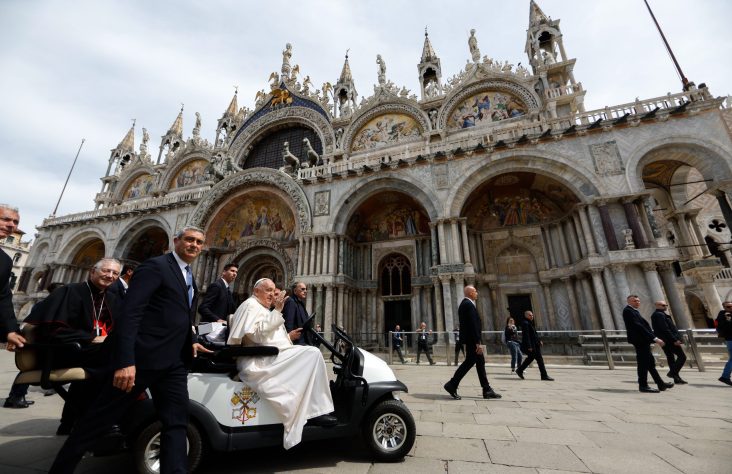February 20, 2024 // Perspective
Christ Never Forgets He Loves Us
“Remember your compassion, O Lord, and your merciful love, for they are from of old.”
Though there are two rich options for the entrance antiphon this Second Sunday of Lent, we will take the one from Psalm 25 for reflection. The other option, from Psalm 27, certainly connects to the Gospel of the Transfiguration – “of you my heart has spoken: Seek His face.” But Psalm 25 points us to a deeper reflection because of how odd it appears at first to ask God to remember anything. Doesn’t an omniscient God have a better memory than an elephant? Isn’t it a little disingenuous to ask God to remember something, since it accuses Him, in the very question, of forgetting?
We must consider the actual meaning and use of “remember” – both here and elsewhere in the Scripture. There is a slight, though admittedly subtle, distinction between the act of remembering and the memory itself. We can see this on a linguistic level, but also with our own experiences. The act of calling someone or something to mind is distinct from the instrument we use. Thus, asking God to “remember” here is not asking Him to exercise the instrument of His memory as much as it is begging God to act. Another way we could translate the psalm above could be, “make known your compassion, O Lord” – that is, bring it into action here and now.
We see this play out throughout the Old Testament. Memory and action are tied intimately together. For example, in Exodus we hear that God heard the cry of His people from Egypt and remembered the covenant He made with Abraham, Isaac, and Jacob. Immediately after God remembers, He meets Moses in the burning bush – a divine intervention to act on His promises. This is confirmed later in Exodus (6:5ff) when God gives His instructions to Moses, saying, “I have heard the groaning of the people of Israel … and I have remembered my covenant.” God then goes on to spell out exactly what He is going to do.
Thus, this antiphon reminds us of what this time of Lent is meant to do in us. This process of remembering works both ways. Here we call on God to remember His compassion and mercy in the particular circumstances of our sinfulness so that He will act to forgive them, heal them, and bring us back to Him. We, for our part, must also remember. We must call to mind the promises of God for us and our promises to Him – and then act. This can also be seen in the logic of God’s word in the Letter to James that faith without works is dead – memory without action is not memory at all, it’s a detached fantasy. It is also emphasized in Christ’s command at the Last Supper to “do this in memory of Me.”
What, then, might this all have to do with the Transfiguration? We see the connection of memory and action on display in the clear typology presented by the first reading this Sunday and the Gospel. We are told that God spared the beloved son of Abraham according to Abraham’s faith – his trust that the God who made His promises through covenant would keep them. And in the Gospel, we discover the fulfilment of the words spoken by Abraham: “God will provide Himself the lamb for a burnt offering, my son.” God, in showing forth the glory of Jesus surrounded by Moses (the Law) and Elijah (the prophets) demonstrates that He has completely and consistently remembered His promises and His compassion. And it is the memory of this event that will help the apostles make sense of all that will occur in the Passion as they act on its power.
Thus, when we beg God, with the psalmist, to remember His compassion and mercy and to forget our sins and transgressions, we enter into the ancient dynamic of our relationship with God – not one where we worry that God will somehow not remember, but rather that He will act in the present according to the promise He has made in the past. For us, then, this antiphon is not only a reference to God’s compassion throughout the Old Testament but a call for Christ’s glory, shown to the apostles on the mountain to – as the collect prays – nourish us inwardly that we may rejoice (as adopted sons and daughters in the Son) to behold God’s glory, the glory of being shown mercy and raised to new life, the very life of God, through our continued journey through the purification of the Lenten season – where memory and action become united perfectly in the Paschal Mystery of Christ.
Father Mark Hellinger is Parochial Vicar at St. John the Baptist Parish in Fort Wayne. He will write weekly reflections throughout Lent for Today’s Catholic.
The best news. Delivered to your inbox.
Subscribe to our mailing list today.






